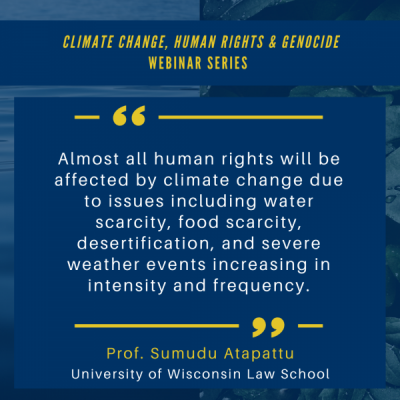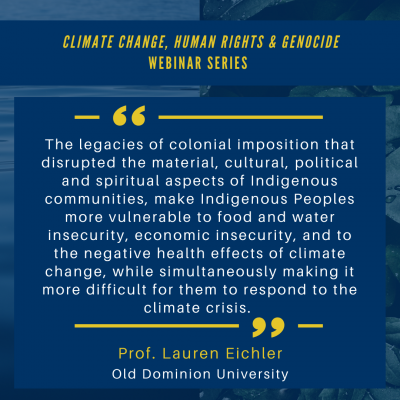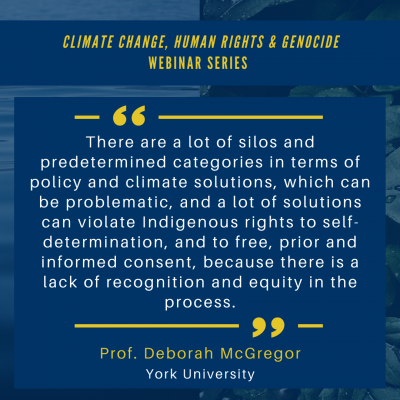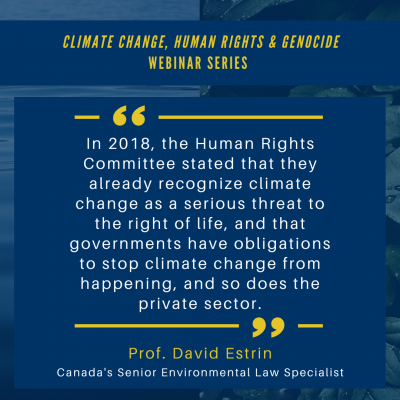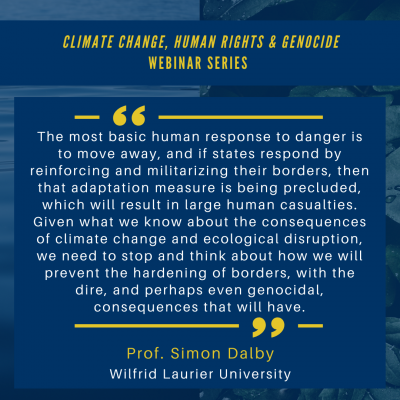“Climate change raises questions about sovereignty, migration – it can result in huge losses of life, and something as precious as water is now becoming a hot commodity on Wall Street and elsewhere. It is going to be desperately needed, and will result in huge conflicts and deaths.”
-Prof. Roger W. Smith, College of William of Mary; Co-Chair of the Zoryan Institute’s Academic Board of Directors
March 28, 2022: As climate change worsens, it will increasingly define life in the 21st century. In the quote above, Prof. Roger W. Smith, Co-Chair of the Zoryan Institute’s Academic Board, reflected on the urgent and rapidly evolving nature of the situation during the Institute’s 2021 Board meeting.
The necessity of bringing climate change into Genocide and Human Rights Studies has also recently been argued in a public letter crafted and signed by 24 genocide scholars, including the Deputy Chair of the Institute’s Academic Board of Directors, Prof. Alex Alvarez, which highlighted the need for a paradigm shift in the field in order to address the interrelations between structural, ecocidal, and genocidal violence.
Recognizing the urgency of the situation, the Zoryan Institute recently concluded its 5-part Climate Change, Human Rights, and Genocide Webinar Series, aimed at allowing students, scholars and the general public to understand, analyze, and critique the interconnections between climate change, human rights, and genocide through a multidisciplinary and comparative lens.
In the initial webinar of the series, titled “Climate Change, Conflict and Displacement: The Role of Human Rights”, Prof. Sumudu Atapattu of the University of Wisconsin Law School stated:
Furthering her argument that climate change must be considered a human rights issue, Prof. Atapattu pointed to a list internationally recognized human rights that will be threatened by climate change:
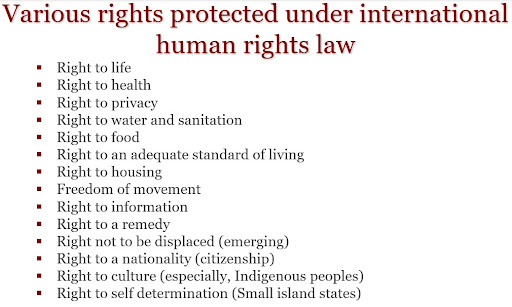
It is also clear from the series that climate change will disproportionately affect the human rights of marginalized populations around the globe. In her presentation, “”Maples Are People”: An Indigenous Critique of Ecocide, Genocide, and the Human/Nature Dualism”, Prof. Lauren Eichler of Old Dominion University discussed climate change as a form of ecocide, discussing the vulnerability of Indigenous Peoples to the negative impacts:
In her presentation, “Indigenous Peoples, Colonialism, and Climate Justice”, Prof. Deborah McGregor, an Anishinaabe scholar at York University, emphasized the importance of including Indigenous voices in climate discussions, partly because Indigenous Peoples are not only impacted disproportionately by climate change, but are also impacted differently due to their relationships to the land:
In the final two webinars of the series, Prof. David Estrin and Prof. Simon Dalby discussed the challenges climate change presents to global governance, human rights law, and territorial boundaries of traditional states. In his webinar, “Limiting Dangerous Climate Change: The Role of Human Rights, Citizen Suits, and Domestic Courts”, Prof. David Estrin, Canada’s Senior Environmental Law Specialist highlighted gaps in global agreements to address climate change, and went on to discuss how existing human rights laws have been utilized to address growing concerns around climate change:
Prof. Simon Dalby’s presentation, “Changing Borders: Climate, Rights, and the Future”, looked at how global governance and the fixed territorial borders of traditional states must be reconsidered to address the human rights consequences of climate change. One such consequence will be the mass movement and displacement of people from their lands due to the depletion of resources and rising sea levels. He used the current crisis in Ukraine as an example to demonstrate the huge influx of refugees across borders, and the need for borders to be more elastic and governments to be accepting and prepared to offer support to climate refugees:
The series raised many thought-provoking questions: How must global governance be adapted in response to increasing recognition of the human impacts of the climate emergency? What kind of international frameworks must be put in place for the recognition and resettlement of climate refugees? What would the meaningful engagement of Indigenous Peoples in climate policy and climate solutions look like? How can the rights of future generations be used to pursue climate action in the legal system? These are just some of the questions that need to be addressed sooner rather than later.
To learn more on these topics, or to watch the full recordings of these sessions, visit https://zoryaninstitute.org/our-work/genocide-and-human-rights-webinar-series/. If you missed the sessions and are interested in learning more about these issues, please contact the Zoryan Institute for further reading materials, including the sources scholars cited in their presentations.

